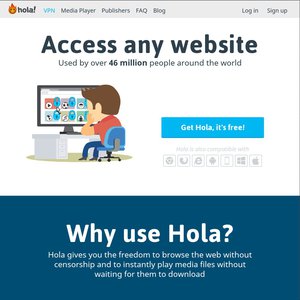Hey all. I've seen a lot of people recommend hola unblocker to gain access to other countries online stores to buy items & also to get bigger libraries on steaming sites. This is probably not a good idea according to this
http://8ch.net/hola.html
In layman terms is that someone could have been using your internet for nefarious purposes (copyright infringement, illegal goods/services) and you would be responsible.
The best way to fix it is to completely uninstall the extension and program, or that's what I would recommend if you are using it.

Yeah and then there are those chemtrails. They deliberately turn on the chemtrails when flying over cities. I think it's a way the world leaders use to keep us subdued to their will. Make us their puppets. We should boycott flying till they remove the chemtrail buttons from the aeroplanes!